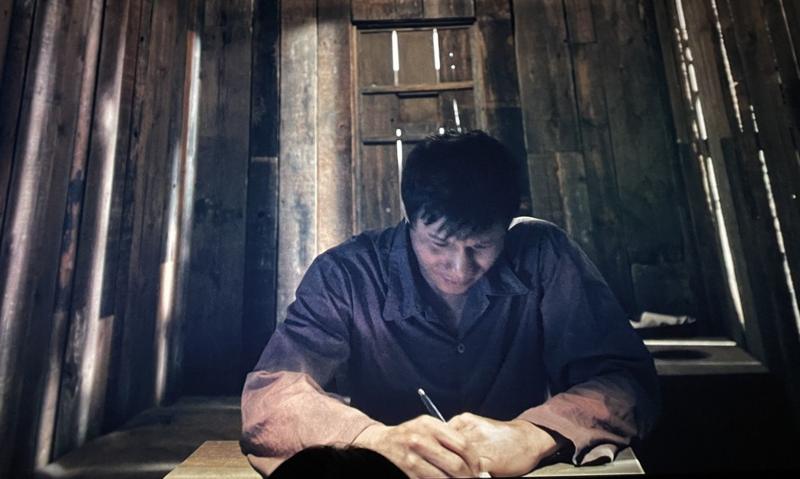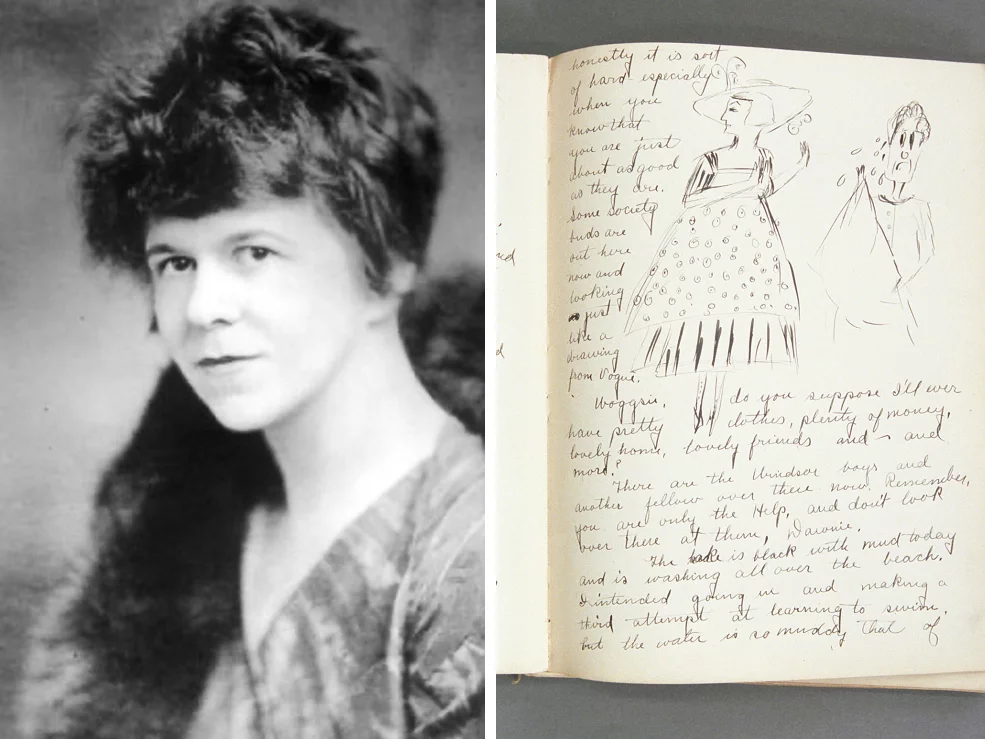Rebecca Laurence and Lindsay Baker
Simon & Schuster/ Faber/ Doubleday
From an intense tale of two brothers to a stunning Booker winner – the very best fiction of the year.
Intermezzo by Sally Rooney
Launched late in the year
to the feverish fan hoards was the fourth instalment in the so-called "Rooneyverse". In a slight departure from the norm, Intermezzo's protagonists are two men: Peter, 32, a talented but troubled barrister, and his 22-year-old chess-prodigy brother, Ivan, both working through grief and family tensions following their father's recent death. Elsewhere, however, there were plenty of Rooney's familiar beats to be enjoyed – tangled relationships, frequent sex, philosophical debates and deceptively simple but assured prose. "Intermezzo is perfect – truly wonderful" writes The Observer, "a tender, funny page-turner about the derangements of grief, and Rooney's richest treatment yet of messy romantic entanglements." Its review concludes by asking: "Is there a better novelist at work right now?" While The New York Times' critic was enchanted, writing: "Intermezzo is Sally Rooney with a bit more butter and cream. Yes, please, waiter. Call me a fool for love, but this oft-jaundiced reader found this meal to be discerning, fattening, old-school and delicious." (RL)
Scribner/ Riverhead Books/ Bloomsbury
Flint Kill Creek by Joyce Carol Oates
If you like your fiction noirish and nerve-shredding, look no further than the latest offering from US literary powerhouse Joyce Carol Oates, the author of more than 60 novels. In Flint Kill Creek, her characters face various macabre situations within a collection of a dozen short stories, with titles including Bone Marrow Doner, The Phlebotomist and Happy Christmas. It is a "grimly satisfying" collection of tales, says Publishers Week. "In each case, Oates's prose is surgically precise, and her appetite for the grotesque falls on the right side of lurid." The protagonists of each tale are bewildered by what is happening around them, thrown off balance, and face chilling, unhappy outcomes. "Yet, in thrall to a master manipulator of words," says the New York Journal of Books, "readers will grit their teeth and turn another page in this collection. The stories in Flint Kill Creek are unforgettable – although many may wish they could forget." (LB)
Small Rain by Garth Greenwell
"From a tale of great pain" The New Yorker writes of Small Rain: "… a rare kind of story - it becomes one so difficult to render that it is thought to be impossible: a story of ordinary love, ordinary happiness." The US writer Garth Greenwell is known for his first two novels, What Belongs to You (2016) and Cleanness (2020), and as a great writer of bodies and sex. With Small Rain, he turns his attentions to another corporeal concern – that of illness and pain. The novel centres on a poet, who is struck down one day with a searing pain and near-fatal illness that confines him first to the ER and then the ICU, as the Covid-19 pandemic rages. "This is a frightening, penetrating, ultimately illuminating novel…", writes The Observer. "Reading it you feel as though you were holding a single grain of rice in your hand which, upon examination under a microscope, reveals itself to be engraved with the history of the world." (RL)
Creation Lake by Rachel Kushner
Shortlisted for the Booker Prize, Rachel Kushner's fourth novel Creation Lake tells the story of Sadie Smith, a 34-year-old US undercover agent who infiltrates a radical eco-activist commune called Le Moulin in a remote region of France. Having insinuated herself into the anarchist group, she then becomes intrigued by an elderly philosopher, Bruno, and his rejection of modern life. Kushner draws the reader in with her "dead-on language" and the "threat-alert atmosphere of the world she imagines", according to NPR. "Creation Lake is an espionage thriller sealed tight in the soiled plastic wrap of noir," it says, and "Kushner is a dazzling chronicler of end times". The Times Literary Supplement calls the novel "a mesmeric, cool and deeply intelligent exploration of (among other things) early man's relationship to time and space. It is huge in scope, finely mapped by Kushner." (LB)
Farrar, Straus and Giroux/ Weidenfeld and Nicolson/ Penguin Random House
All Fours by Miranda July
"Gutsy, funny, wise, chaotic, dirty, panic-inducing", writes Vulture of July's second novel, which follows an unnamed 45-year-old semi-famous artist, as she embarks on a road trip to escape her partner and son. Instead, she winds up in a nearby motel where she proceeds to redecorate her room and start a wild affair with a young, aspiring hip-hop dancer. Described by some as a "perimenopause novel", All Fours documents the chaotic, all-encompassing period of a woman's mid-life, rarely featured in literature, with wry humour and explicit detail. "July's characteristic dry observational style can turn with equal ease to insouciant aphorism or to the lyrical eloquence with which she writes the extravagant, ungendering, transfiguring sex that takes the narrator to extremes of her own inwardness while forcing new kinds of contact and honesty", writes The Guardian. Vulture's critic describes All Fours as: "one of the most entertaining, deranged, and moving depictions of lust and romantic mania I've ever read". (RL)
Bright I Burn by Molly Aitken
Molly Aitken's 2020 debut The Island Child – about the power and danger of a mother's love – was a critical triumph. Her second has been equally well received, and is based on the true story of the first Irish woman convicted of witchcraft, Alice Kyteler (1280-1325). Bright I Burn portrays a formidable but humane heroine with a love of power, sex and wealth, who gets through four husbands, all of whom come to a suspicious end – whereupon an ambitious bishop condemns her as a witch. Alice's voice is interspersed throughout by the commentary of a chorus of judgmental villagers. "The novel moves through the decades in sharp, poetic vignettes," says Publishers Week. "It adds up to a fiercely intelligent and often surprising examination of a woman's choices and their consequences." The Irish Times, meanwhile, describes Bright I Burn as "mesmerising", and "an imaginative, very stylishly written and entertaining book". (LB)
The Safekeep by Yael Van der Wouden
Shortlisted for The Booker Prize this year, Van der Wouden's sharp and sexy debut novel is set in The Netherlands 16 years after World War Two. Its protagonist is Isabel, an uptight, controlled and humourless figure who lives alone in her family's countryside home, shunning outsiders, intimacy and joy. All this begins to be broken apart when her brother's girlfriend, Eva, comes to stay. Amid the sweltering heat of the summer, tensions between the two women simmer, and truths are uncovered, leading to the plot's central, devastating revelation. "A quietly remarkable book" writes The New York Times of The Safekeep: "the story is resolved in such a bold and tender way that it becomes not merely clever, but indelible." The Washington Post praises The Safekeep as: "the rare novel about World War Two, the Holocaust and their aftermath that succeeds in feeling fully, intimately human". (RL)
Penguin Random House/ Macmillan
The Hypocrite by Jo Hamya
What happens when we stop idolising our parents and the generation above us? This is the question tackled in The Hypocrite, UK author Jo Hamya's second novel, shortlisted for the Nero Book Awards. A 20-something playwright publicly lampoons her chauvinistic father with a play based on her memories of a Sicilian holiday that father and daughter shared 10 years previously. As the novelist father watches the play unfold, the novel explores art, family dysfunction and generational tension. "What Hamya brings to this modern debacle, besides a precision of language and an aptitude for structure that ought to make her contemporaries quake, is a tenderness you don't see coming," says The Atlantic. The Chicago Review of Books praises the "immaculate character crafting" of the novel. "I was engrossed in this father-daughter duel from the first page to the very last. A novel chalk full of wrongdoings, generational feuds, and rude awakenings, The Hypocrite is a story that will stick with you long after you put it down." (LB)
Martyr! by Kaveh Akbar
"Incandescent" writes The New York Times of the award-winning poet Akbar's first novel. Its protagonist is Iranian-American immigrant Cyrus Shams, whose family is shattered after his mother's death (her plane was shot down by a US Navy warship). The troubled hero becomes obsessed with martyrs – Bobby Sands, Joan of Arc – and with martyrdom, in his search for a meaningful death "The novel itself is almost violently artful, full of sentences that stab, pierce, and slice with their beauty," writes The New Yorker. "This is a novel that comes at you from every conceivable direction," writes The Observer, "some playful, some whimsical, others grimly intense." In its review – and the book was subsequently selected as one of the paper's 10 novels of the year – The New York Times writes: "what Akbar pulls off in Martyr! is nothing short of miraculous." (RL)
Our Evenings by Alan Hollinghurst
Class, sexuality and politics are the themes that Alan Hollinghurst often returns to in his masterful novels, which have included The Swimming Pool Library (1988) and the 2004 Booker-winner The Line of Beauty. And Our Evenings, in which the late middle-aged narrator Dave Win shares the trajectory of his life, revisits these themes. Dave's story unspools, from childhood to growing into adulthood as a gay man of a generation that reached maturity not that long after the decriminalisation of homosexuality. Over the years, Dave welcomes his freedoms, faces intolerance, finds love and loses it, encounters an old adversary, all against a backdrop of constant social and cultural change. "The events keep coming, but the quiet moments that receive such loving attention are the real treasure," says The New Statesman. "The depiction of Dave's mother Avril, their closeness is palpable and deeply moving." The Guardian says: "Hollinghurst is precise about sentiment in ways that puts loose sentimentality to shame." He is "above all an appreciator," it adds. "That capacity for appreciation acquires new emotional and political meaning here, in the finest novel yet from one of the great writers of our time."(LB)
Viking/ Simon & Schuster/ Penguin Random House
The Empusium by Olga Tokarczuk
Set in 1913, the Nobel Laureate's latest is subtitled "a Health Resort horror story", in which an ailing young man travels to a sanatorium in the Silesian mountains. As he observes the rituals and conversations of the men around him, strange and mysterious disturbances begin to infiltrate and interrogate their environment. Published 100 years after The Magic Mountain, The Empusium sets up a knowing reference to – and subversive contemporary dialogue with – Thomas Mann's European classic. "Though the novel describes itself as a 'horror story'," writes The Spectator, "it's more a salutation to the power of the natural world and a celebration of difference." The Atlantic says The Empusium is: "a masterful novel, with a breadth of possible readings", while The Irish Times calls it: "a striking reaffirmation of literature's genius for nuance in a world darkened by murderous polarities". (RL)
The Proof of my Innocence by Jonathan Coe
The satirical novels of Jonathan Coe are steeped in the British experience – from the Thatcher years in What a Carve Up! (1994) to the sweeping 1970s-set The Rotters' Club (2001). His new novel The Proof of my Innocence darts between decades, from 1980s Cambridge to 2022 at the time of the short-lived rise and fall of former UK Prime Minister Liz Truss. The 23-year-old protagonist, English graduate Phyl, is living with her parents, working a zero-hours job in a sushi chain. The story moves into cosy-crime mixed with dark academia mode when Phyl is faced with a shocking death. "The premier satirist of great British crapness is on killer form in this gag-a-minute mystery," according to The Observer, while The Guardian describes Coe as "the laureate of Britishness". It adds: "The Proof of My Innocence is full of energy. It's a madcap caper, a sideways memoir, a tricksy jeu d'esprit that is also a quiet defence of fiction in a post-truth age, and enormous fun to read." (LB)
Macmillan/ Simon & Schuster/ Grove Atlantic
Caledonian Road by Andrew O'Hagan
"A sensational state-of-the-nation novel with a cast of dozens" is how the Irish Independent describes Caledonian Road, Andrew O'Hagan's most ambitious novel yet. Having won the Christopher Isherwood prize for Mayflies, and been nominated for the Booker, the Scottish author has now written a sweeping, London-set, satirical novel that has been compared to the social novels of both Dickens and Tom Wolfe. It tells the story of 52-year-old Scot Campbell Flynn, a celebrity writer and academic, as he encounters an ensemble cast of characters, from minor royals and Russian oligarchs to human traffickers and grime artists. It is an "addictively enjoyable yarn," says The Guardian, "with the swagger and bling of an airport bestseller and an insider's grasp on the nuances of high culture… a book simultaneously dazzled and disgusted by the city it depicts". (LB)
My Heavenly Favourite by Lucas Rijneveld
Lucas Rijneveld, together with his translator Michele Hutchison, won the 2020 International Booker prize for his debut, The Discomfort of Evening. His latest, "a dazzling addition to the oeuvre of an author with prodigious gifts" according to The Guardian, is set in a farming community in the Netherlands, its narrator a 49-year-old vet who is fixated on a 14-year-old girl. Reijneveld's creation is, writes the FT, "a relentless, demanding novel" which nevertheless confirms the writer's "singular, deeply discomforting talent". Comparisons with Nabokov are inevitable, but Rijneveld "squares up deliberately to Lolita" writes The Guardian, "taking a more serious approach to their shared subject". (RL)
Green Dot by Madeleine Gray
Green Dot follows the snarky but self-aware 24-year-old Hera as she attempts to find connection and meaning in her life, taking a job on a news website, and soon falling for an older married journalist, Arthur. Despite cynicism in all other areas of her life, she becomes besotted with him, and – despite herself – begins to long for a conventional, picket-fence happy ever after. A debut novel, Green Dot has been widely praised, and compared favourably with the likes of Helen Fielding's Bridget Jones and Meg Mason's Sorrow and Bliss. The Irish Times observes that "despite the arch and exuberant writing style, there is a bleak undercurrent to the book". iNews describes it as "a brilliantly bawdy novel… a Fleabag-style debut [that is] actually worth the hype". (LB)
Viking/ Penguin Random House/ Simon & Schuster
The Sleepwalkers by Scarlett Thomas
Billed as "Patricia Highsmith meets The White Lotus", the new novel from the author of the acclaimed The End of Mr Y is a wildly original summer thriller that begins as a just-married couple arrive at their luxury hotel on a Greek Island – reeling from the dramas of their wedding, and withholding secrets from one another. Told through letters, torn notebook pages and transcripts, The Sleepwalkers wrongfoots and surprises the reader at every turn, descending into a dark, Gothic mystery. "Through her bold storytelling," writes The New York Times, "The Sleepwalkers becomes a work of peculiar, gonzo genius." (RL)
Wild Houses by Colin Barrett
The first novel by short story writer Colin Barrett is set in a small town in Ireland. A sweet-natured teenage boy, Doll, is kidnapped by a local gang, taken as collateral for his elder brother's crimes. It's "a superb Irish tale of violence, loyalty and loss", says the Telegraph, and maintains the "energy and verve" of his previous stories. The Washington Post calls it "an electric thriller", with masterful touches of comedy, as "tense moments suddenly burst with flashes of absurdity or comic exasperation". Praising the novel's authentic feel, the Post adds: "Barrett's dialogue, spiked with the timbre of Irish speech and shards of local slang, makes these characters sound so close you'll be wiping their spittle off your face… The craft of Wild Houses shows a master writer spreading his wings – not for show but like the stealthy attack of a barn owl." (LB)
Change by Édouard Louis
When Édouard Louis's coming-of-age memoir-as-novel The End of Eddy was first published in 2014, it turned the then barely 20-something into a global literary sensation. Like the works that followed, such as Who Killed My Father? (2018) and A Woman's Battles and Transformations (2022), Change, first published in France in 2021 as Changer: méthode, is a companion piece to Louis's other works, which together make up a kind of Louis literary universe of interconnected characters and timelines. Change is, according to The Telegraph, "the most nuanced and candid portrait of Louis's life yet", while the TLS writes: "Change displays exhilaratingly the boldness of invention that underlines the author's desperation to explain himself, his constant search for better ways to express the contradictions inherent in his violent struggle for freedom from violence." (RL)
Parasol Against the Axe by Helen Oyeyemi
Hero Tojosoa accepts an invitation that she was expected to turn down, and finds herself on a chaotic hen weekend in Prague, hosted by her estranged friend Sofie. As the group of women converge to celebrate, each of their individual versions of the past come together too, and we are reminded that all stories can have many different perspectives. The novel abandons conventional narrative, turning into several stories within the story, and becoming unexpected in many ways for both the reader and the characters on the page. "The bold, lucid, and experimental latest from Oyeyemi portrays Prague as a city of dreams and mysteries," says Publishers Weekly. Another Magazine, meanwhile, praises Parasol Against the Axe's originality: "Oyeyemi's vision is vast and enigmatic, carried by sentences so crisp and lithe, this is like nothing you’ve ever read before." (LB)
Graywolf/ Atlantic Books/ WW Norton & Company
Choice by Neel Mukherjee
"A strangely uplifting, exquisitely droll heartbreaker of a book," writes The New York Times of Choice, the latest novel from the author of the Booker-shortlisted The Lives of Others. Beginning with the story of Ayush, an editorial director at a London publishing house, Choice is divided into three distinct but interconnected narratives that cross the globe, together exploring ethical dilemmas and the notion of free will through the contemporary concerns of climate change and global poverty. Choice is "a brilliant, bleak, moral maze of a novel" writes The Guardian, which offers no easy answers. (RL)
Victim by Andrew Boryga
"I wasn't trying to play the victim until the world taught me what a powerful grift it is." This is the opening sentence of Victim, a novel presented as the memoir of flawed protagonist and Bronx native Javi Perez, who plays the game of tragic storytelling to his own advantage. Javi learns that his background – murdered father, single, struggling mother, best friend an imprisoned gang member – is the perfect route to fame and fortune, and he is soon creating – and selling – stories around his identity in order to gain recognition as a writer. This shrewd "hustling Icarus", as the New York Times Book Review describes him, is at this centre of this "energetic and deeply satisfying debut novel". The Southern Review of Books praises the author's mastery of character: "Boryga's character development is exceptional. He draws the reader into Javi's psyche, experiencing his constant rationalisations, the fear of being caught, and the occasional pangs of guilt." (LB)
Blessings by Chukwuebuka Ibeh
Blessings tells the story of shy protagonist Obiefuna's struggle to fit into a society where homosexuality is criminalised, homophobia is unquestioned and where any gender non-conformism is condemned. When he is caught in a clinch with another boy, his conservative, dogmatic father is outraged, sending him off to a strict Christian boarding school. First love and first enmity soon follow, as Obiefuna matures and learns how the world works.The Observer describes Blessings as a "an emotive, affecting debut", achieving "a blend of the particular and the universal, glossing traditional storytelling with a literary finesse that adds style without scaring the horses". It is a "sublime coming-of-age tale, " says the Guardian. "In a novel of secrecy, silences and silencing, Ibeh's sentences throughout are fastidiously pruned." (LB)
James by Percival Everett
For anyone previously unfamiliar with Everett's decades-long career, they will likely know him now, after his acclaimed 2001 novel, Erasure was turned into the Oscar-nominated 2023 film American Fiction. Everett's latest is a reimagining of Mark Twain's The Adventures of Huckleberry Finn from the point of view of the enslaved Jim, which hits all the familiar narrative beats of its inspiration while creating a dazzling (and very humorous) new work. "Gripping, painful, funny, horrifying, this is multi-level entertainment," writes The Observer, "a consummate performance to the last." (RL)
Worry by Alexandra Tanner
The candid, funny narrator of Worry is Jules, a 28-year-old aspiring writer from Florida. Having moved to Brooklyn following college, she is working in an uninspiring job and spending her spare time endlessly scrolling influencers on social media, when her troubled younger sister Poppy turns up, needing a place to stay. Together, the siblings navigate the battles of adulthood, with the airless apartment the claustrophobic setting for their regression, internet addiction and co-dependence. "A fabulous comic novel of young adult angst," is how The New York Times describes Worry, in which the "fixations, disappointments, aversions and maladjustments of adulthood" are laid bare. The Washington Post points out that the novel is "paced like the internet: petty micro-dramas create a sense of movement, but mostly nothing happens". Ultimately, says the Post, Worry is a "a bitingly funny, extremely online novel about sisterhood". (LB)












